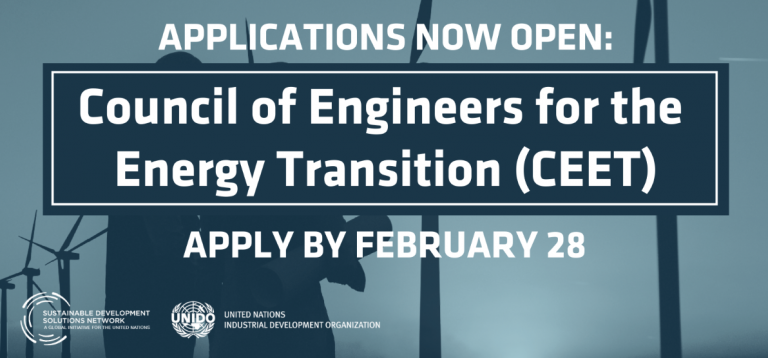Public policy affects the work of engineers of all disciplines, no matter whether the engineer is aware of the impact, or involved in the making of each policy. Engineers work under the laws, codes and standards and within the financial priorities that constitute public policy. Engaging with policy to create it or modify it can impart more control and grant engineers the freedom to instill more of their own values into their work.
Dr. Jana Milford, a mechanical engineer and Professor Emerita in the Environmental Engineering Department at the University of Colorado, Boulder, discussed how to engage students in public policy at the Eleventh International Conference on Engineering Education for Sustain able Development in June at Colorado State University in Fort Collins, Colorado, USA. The talk was aimed at engineering faculty, but with only a little adaptation, Dr. Milford’s advice serves practicing engineers and fields outside of academia, as well. Dr. Milford encourages engineers to examine their own values and consider how their values could drive the creation of policy.
Why should engineers get involved in public policy?
Engineers have a responsibility to hold paramount the safety, health and welfare of the public, Dr. Milford says, citing the Code of Ethics by the National Society of Professional Engineers Code.
“Engineers shall at all times strive to serve the public interest.
“Engineers are encouraged to participate in civic affairs; career guidance for youths; and work for the advancement of the safety, health, and well-being of their community.”
Addressing climate change falls within the engineers’ responsibility to serve public interest; it is Dr. Milford’s view, and one of the core values of the leadership of Engineering for Change.
“One of the most urgent and critical motivators for myself and for many of my students is, of course, the climate crisis,” Dr. Milford says.
Citing the Intergovernmental Panel on Climate Change (IPCC) report released in March, Dr. Milford highlights a warning, a moment of hopefulness and a challenge.
Warning: “The pace and scale of what has been done so far, and current plans, are insufficient to tackle climate change.” – IPCC report
Hope: “There are multiple, feasible and effective options to reduce greenhouse gas emissions and adapt to human-caused climate change, and they are available now.” – IPCC report
Challenge: “Emissions should be decreasing by now and will need to be cut by almost half by 2030, if warming is to be limited to 1.5°C.” – IPCC report
The IPCC report points out there is hope, and effective options are available to achieve greenhouse gas emissions cuts, but we are challenged to do so quickly.
“That need to do it quickly means that we have to have public policy change, not just individual action,” Dr. Milford says.
How can engineers become involved in public policy?
Answers to the question “how” bleed through into answers to the question “why.” When engineers consider the myriad aspects of their work that public policy touches, it becomes clear how they can interact with those policies and also why their engagement matters.
A short list of forays engineers can take into public policy engagement:
- Comply with regulations
- Pursue government funding for projects
- Participate in planning
- Set standards
- Create regulatory rules
- Craft or advocate for legislation
- Volunteer to support or forestall regulation
Skills engineers need to engage effectively in public policy
Engineers will need a mental toolkit that fosters problem solving and analysis before they can engage effectively in public policy. Dr. Milford adapted a list of skills engineers should have from a report by John Ramsey published in 1993 in the journal Science Education. The original paper is directed at science educators, but Dr. Milford holds up the skillset as valuable to engineers. She has also added her brief analysis of the skills mentioned, and all of that is wrapped together in the list below.
To shape public policy, engineers should know how to:
- Identify how science and engineering play a role in social issues.
- Analyze issues, including identifying key players and how their beliefs and values influence the solution. Summed up, this skill is the ability to listen.
- Examine problems holistically, including social, economic, political, legal and ecological ramifications. Engineers should recognize the need for other disciplines.
- Evaluate all the evidence to determine the most effective solution. Recognize that there is seldom a single best solution.
- Use decision-making models to develop action plans, while recognizing the limitations of decision-making models.
- Execute the plan. Engineers should attend to the implementation and play the long game. They should recognize the need to track progress, iterate and adapt.
From passive to active
Public policy directs the engineering profession, and it forces engineers to make a decision. Engineers can comply with the policies that others make and allow outside influences to shape their work, or they can take part in creating policy to match their values, their worldviews and their priorities.
“What I really tried to do with my students is encourage them to think about and realize that they can move from the more passive recipients of public policy that gets imposed on them to actually engage in creating and refining public policy so that it works better,” Dr. Milford says.


I haven’t had any idea how engineers could be involved in public policies. Thanks to Dr. Milford for giving the direction.
I really love this article from the professor